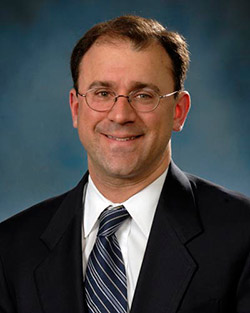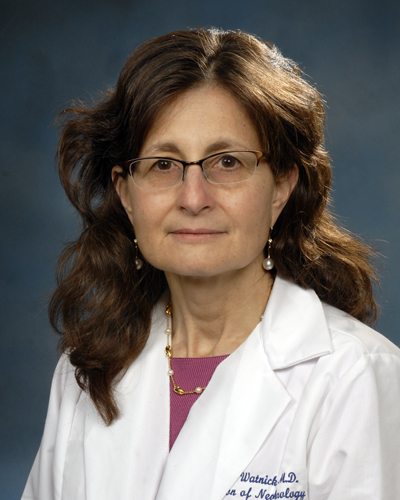November 23, 2021 | January Payne
Under a new race-neutral assessment, thousands of African American persons living with chronic kidney disease could gain access to specialty treatment or transplantation for the first time
University of Maryland Medicine, comprised of the University of Maryland Medical System (UMMS) and the University of Maryland School of Medicine (UMSOM) has announced that it will end the use of a long-standing clinical standard that factors a patient’s race into the diagnosis of chronic kidney disease (CKD). The change could increase access to specialty care, including eligibility for kidney transplantation for thousands of African American people living with advanced kidney disease.
By late January, the System, including its flagship academic hospital, the University of Maryland Medical Center (UMMC), will transition to new a standard of evaluating kidney function, eliminating whether a patient is “African American or non-African American” as a factor. The move follows a review by University of Maryland School of Medicine (UMSOM) clinicians and scientists of recently released recommendations from professional societies.
 By one estimate, approximately 720,000 African Americans might be treated earlier for kidney disease if race were removed from the calculations of kidney function. In Maryland, and the Mid-Atlantic region more broadly, thousands of people could be impacted by this transition to race-free eGFR.
By one estimate, approximately 720,000 African Americans might be treated earlier for kidney disease if race were removed from the calculations of kidney function. In Maryland, and the Mid-Atlantic region more broadly, thousands of people could be impacted by this transition to race-free eGFR.
“This is a significant development for University of Maryland Medicine and for academic medicine in general,” said Mohan Suntha, MD, MBA, President and CEO of UMMS. “We are in a period of evolution toward truly understanding the scope and impact of race-based disparities in healthcare and taking steps to address inequities. I commend our physician leadership and University of Maryland School of Medicine partners who have taken swift and decisive action to operationalize this change across our System hospitals, programs and clinical partners. We are proud to be among the nation’s first academic medical systems leading this imperative.”
Since 1999, nephrologists across the country have used an equation to estimate glomerular filtration rate (eGFR), which reflects how well a person’s kidneys filter waste. This equation relies on levels of creatinine – a byproduct of muscle and protein metabolism – from the blood. In addition to age and gender, the calculation takes into account whether a patient is “African American or non-African American” and assigns a multiplier based in part on a discredited notion that African American people tend to have more muscle mass than people of other races. This higher value often overestimates the health of African American patients’ kidneys, pushing them above the threshold for diagnosis of advanced kidney disease, and therefore, leading to delayed referral for specialty care, or even disqualification for kidney transplant.
“We assembled an interdisciplinary ad hoc group of faculty at the University of Maryland School of Medicine many months ago to begin discussing a plan to replace race-based eGFR to assess kidney function,” said Sandra Quezada, MD, MS, AGAF, UMSOM Associate Dean for Admissions, Assistant Dean for Faculty Diversity and Inclusion, and Associate Professor of Medicine in the Division of Gastroenterology and Hepatology. “National guidelines were published in late September with recommendations on alternative equations to use, and we were able to present this to our University of Maryland Medical System leadership, which has responded positively and swiftly. We are so proud that the System is implementing this important change for the benefit of our patients.”
Following a report last year in the New England Journal of Medicine, the National Kidney Foundation (NKF) and the American Society of Nephrology (ASN) formed a joint task force to review the use of race in eGFR calculations. In September, the group endorsed a new calculation without the race coefficient. A committee of UM Medicine researchers, kidney specialists, clinical quality leaders and health equity champions then quickly convened to closely review the new guidance and drive forth a strong recommendation for change. This change was also enthusiastically endorsed by the Quality and Safety Committee of the UMMS Board.
 “We are working expeditiously, but responsibly to take race out of the equation,” said Stephen Seliger, MD, MS, Associate Professor in the Department of Medicine, Division of Nephrology, UMSOM, and an attending nephrologist at UMMC. “But, anytime we advance change, we need to make sure we are not introducing unintended consequences. We have engaged a multidisciplinary team to develop a roadmap that will ensure a strong degree of accuracy in our evaluation of chronic kidney disease and its severity for all patients. We also want to ensure that our systems, internal and external stakeholders are all aligned. While the shift in the numbers seems small, the implications are not trivial. The elimination of race-based adjustments will alter reality for many of our patients.”
“We are working expeditiously, but responsibly to take race out of the equation,” said Stephen Seliger, MD, MS, Associate Professor in the Department of Medicine, Division of Nephrology, UMSOM, and an attending nephrologist at UMMC. “But, anytime we advance change, we need to make sure we are not introducing unintended consequences. We have engaged a multidisciplinary team to develop a roadmap that will ensure a strong degree of accuracy in our evaluation of chronic kidney disease and its severity for all patients. We also want to ensure that our systems, internal and external stakeholders are all aligned. While the shift in the numbers seems small, the implications are not trivial. The elimination of race-based adjustments will alter reality for many of our patients.”
Nationally, African American adults are three times more likely to suffer from kidney failure — making up roughly a third of U.S. dialysis patients, while comprising only 13% of the population. Delays in diagnosis exacerbate this gap — one reason UMMS experts say that while time is of the essence, getting this transition right is equally important.
UM Medicine is acting to implement this change so quickly is a testament to the leadership roles the institution has in the academic medicine and health system arenas. UMSOM is a participating site in the APOL1 Long-term Kidney Transplantation Outcomes Network (APOLLO), led by the National Institute of Diabetes and Digestive and Kidney Diseases at the National Institutes of Health.
 Many African American persons who eventually need kidney transplants have a genetic variant called APOL1, short for apolipoprotein L1. In Africa, APOL1 protects against African sleeping sickness, which is transmitted by the tsetse fly. In the United States, APOL1 seems to increase the risk of kidney disease. APOLLO participants – kidney donors and recipients of kidney donations -- have DNA tests to determine the variant’s effects on kidney transplant outcomes.
Many African American persons who eventually need kidney transplants have a genetic variant called APOL1, short for apolipoprotein L1. In Africa, APOL1 protects against African sleeping sickness, which is transmitted by the tsetse fly. In the United States, APOL1 seems to increase the risk of kidney disease. APOLLO participants – kidney donors and recipients of kidney donations -- have DNA tests to determine the variant’s effects on kidney transplant outcomes.
“We know that African American persons historically suffer disproportionately from chronic kidney disease, and we have long sought a solution to improve outcomes. Changing the very method we use to diagnose kidney disease could be a game changer for many patients whose eGFRs may have appeared to be in normal range previously. If they do, in fact, have kidney disease, finding out earlier could make a difference in the person’s long-term health,” said E. Albert Reece, MD, PhD, MBA, Executive Vice President for Medical Affairs, University of Maryland, Baltimore, and the John Z. and Akiko K. Bowers Distinguished Professor, and Dean, UMSOM. “The decision to stop using race-based eGFR calculations at UM Medicine could effectively level the playing field, which was sorely needed. I commend our entire team of faculty, clinicians, scientists, UMMC staff and UM Leadership collegues."
 For UMMS Chief Diversity, Equity and Inclusion Officer, Roderick K. King, MD, MPH, the consequences of race-based medicine are impossible to ignore.
For UMMS Chief Diversity, Equity and Inclusion Officer, Roderick K. King, MD, MPH, the consequences of race-based medicine are impossible to ignore.
“This is an historic step forward, and one I hope will bring greater awareness to the inherent flaws in many medical measurements that can foster the disproportionate toll chronic disease takes on people of color. Achieving equity in the diagnosis and treatment of kidney disease will clearly require interventions beyond the adoption of a race-independent eGFR calculation,” Dr. King said. “But I am encouraged by the far-reaching impact this will have in the communities we serve, and honored to work alongside colleagues who share my dedication to driving progress.”
About the University of Maryland School of Medicine
Now in its third century, the University of Maryland School of Medicine was chartered in 1807 as the first public medical school in the United States. It continues today as one of the fastest growing, top-tier biomedical research enterprises in the world -- with 46 academic departments, centers, institutes, and programs, and a faculty of more than 3,000 physicians, scientists, and allied health professionals, including members of the National Academy of Medicine and the National Academy of Sciences, and a distinguished two-time winner of the Albert E. Lasker Award in Medical Research. With an operating budget of more than $1.2 billion, the School of Medicine works closely in partnership with the University of Maryland Medical Center and Medical System to provide research-intensive, academic and clinically based care for nearly 2 million patients each year. The School of Medicine has nearly $600 million in extramural funding, with most of its academic departments highly ranked among all medical schools in the nation in research funding. As one of the seven professional schools that make up the University of Maryland, Baltimore campus, the School of Medicine has a total population of nearly 9,000 faculty and staff, including 2,500 students, trainees, residents, and fellows. The combined School of Medicine and Medical System (“University of Maryland Medicine”) has an annual budget of over $6 billion and an economic impact of nearly $20 billion on the state and local community. The School of Medicine, which ranks as the 8th highest among public medical schools in research productivity (according to the Association of American Medical Colleges profile) is an innovator in translational medicine, with 606 active patents and 52 start-up companies. In the latest U.S. News & World Report ranking of the Best Medical Schools, published in 2021, the UM School of Medicine is ranked #9 among the 92 public medical schools in the U.S., and in the top 15 percent (#27) of all 192 public and private U.S. medical schools. The School of Medicine works locally, nationally, and globally, with research and treatment facilities in 36 countries around the world. Visit medschool.umaryland.edu
About the University of Maryland Medical System
The University of Maryland Medical System (UMMS) is a university-based regional health care system focused on serving the health care needs of Maryland, bringing innovation, discovery and research to the care we provide and educating the state’s future physician and health care professionals through our partnership with the University of Maryland School of Medicine and University of Maryland, Baltimore professional schools (Nursing, Pharmacy, Social Work and Dentistry) in Baltimore. As one of the largest private employers in the State, the health system’s more than 29,500 employees and 4,000 affiliated physicians provide primary and specialty care in more than 150 locations, including 13 hospitals and 9 University of Maryland Urgent Care centers. The UMMS flagship academic campus, the University of Maryland Medical Center in downtown Baltimore, is recognized regionally and nationally for excellence and innovation in specialized care. Our acute care and specialty rehabilitation hospitals serve urban, suburban and rural communities and are located in 13 counties across the State. For more information, visit www.umms.org.
About the University of Maryland Medical Center
The University of Maryland Medical Center (UMMC) is comprised of two hospital campuses in Baltimore: the 800-bed flagship institution of the 13-hospital University of Maryland Medical System (UMMS) and the 200-bed UMMC Midtown Campus. Both campuses are academic medical centers for training physicians and health professionals and for pursuing research and innovation to improve health. UMMC's downtown campus is a national and regional referral center for trauma, cancer care, neurosciences, advanced cardiovascular care, and women's and children's health, and has one of the largest solid organ transplant programs in the country. All physicians on staff at the downtown campus are clinical faculty physicians of the University of Maryland School of Medicine. The UMMC Midtown Campus medical staff is predominantly faculty physicians specializing in a wide spectrum of medical and surgical subspecialties, primary care for adults and children and behavioral health. UMMC Midtown has been a teaching hospital for 140 years and is located one mile away from the downtown campus. For more information, visit www.umm.edu.
Contact
January Payne
Phone: 443-203-8183
Email: january.payne@som.umaryland.edu
Related stories

Thursday, February 23, 2023
Baltimore PKD Research and Clinical Core Center Receives Prestigious ‘Center of Excellence’ Designation from PKD Foundation
The PKD Foundation recently recognized the University of Maryland School of Medicine’s (UMSOM) clinical center that treats polycystic kidney disease (PKD)with a highly prestigious “Center of Excellence” designation. The designation recognizes the center as a leader in providing multidisciplinary, comprehensive clinical services for families affected by autosomal dominant polycystic kidney disease (ADPKD), a hereditary condition. It is one of just 28 clinical centers in the U.S.to receive this recognition.

Friday, September 14, 2018
Nationwide Research on African-American Kidneys Hopes to Unravel Genetic Variation That Increases Disease Risk
With African-Americans developing kidney failure at rates four to five times higher than Americans of European descent, a groundbreaking nationwide study will track nearly every African-American donor kidney over the next five years.

Monday, August 07, 2017
Adding Targeted Therapy To Chemoradiation Fails To Improve Survival for Esophageal Cancer Patients
Adding the targeted therapy cetuximab to chemotherapy and radiation treatment does not improve overall survival for patients with esophageal cancer, according to new research published online in JAMA Oncology.

Thursday, March 23, 2017
University of Maryland Medical Center Midtown Campus Receives Regulatory Approval for New Ambulatory Care Center
University of Maryland, Baltimore (UMB) President Jay A. Perman, MD, along with the University of Maryland School of Medicine (UM SOM) Dean E. Albert Reece, MD, PhD, MBA, and the University of Maryland School of Nursing (SON) Dean Jane M. Kirschling, PhD, RN, FAAN, announced today that an alumni couple, Richard Sherman, MD, SOM ’72, and Jane Sherman, PhD, SON ’85, have made a $1.5 million gift to the University to establish a health care innovation center to be located in the Health Sciences & Human Services Library.

Thursday, May 19, 2016
Mohan Suntha, M.D., Named President and CEO of University of Maryland Medical Center
Mohan Suntha, M.D., a physician leader with more than 20 years of medical and administrative experience within the University of Maryland Medical System (UMMS), has been named President and Chief Executive Officer (CEO) of the University of Maryland Medical Center (UMMC) effective September 1, 2016.

